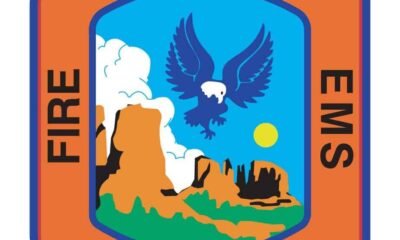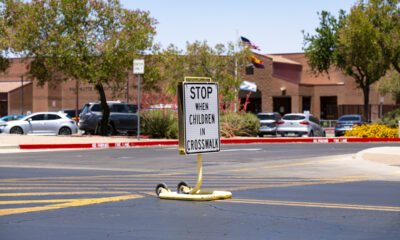budget
School Board Legislation Faces Backlash Amid Looming District Closure

In a significant development for education in Arizona, nearly 5,000 students in west Phoenix are facing uncertainty as their school district grapples with financial instability. State lawmakers are stepping in, aiming to influence the governance of school boards statewide.
House Bill 2610 is at the forefront of this legislative effort, introduced by Representative Matt Gress, R-Phoenix. The bill is a response to the Isaac School District’s dire financial situation, including over $28 million in budget overspending and the alleged falsification of financial records. Initially, HB2610 sought to remove superintendents and school board members from office if their districts entered receivership, but recent amendments have removed the mandatory resignation for board members.
House Speaker Steve Montenegro, R-Goodyear, emphasized the need for accountability in a press release, stating, “The falsification of financial records and the mismanagement of public funds are a betrayal of trust and must be investigated immediately.” In contrast, Senator Flavio Bravo, D-Phoenix, expressed skepticism over the bill’s effectiveness, noting that while he shares concerns about the district’s leadership, the measure might not prevent similar crises in other districts.
Democrats also urge the resignation of the school board’s leadership but prefer that Attorney General Kris Mayes handle ongoing investigations into the district. House Minority Leader Oscar De Los Santos, D-Laveen, criticized House Bill 2610 as overly broad, arguing that increased transparency requirements for public schools highlight deficiencies in the ESA program.
An alternative bill proposed by Democrats aims to prevent future financial mismanagement. However, it has stalled in the House due to potential conflicts of interest concerning its sponsor. Representative Lydia Hernandez, D-Phoenix, introduced House Bill 2883, which sought to establish mandatory biennial training for school board members on financial matters. Controversy arose when an amendment, allowing immediate family members to serve on the same board, drew opposition. This controversy culminated in the bill’s defeat on the House floor, with a final vote tally of 21-35.
Despite the setback, the amendment was later removed, although the bill has yet to undergo another floor vote. Additionally, Senator Carine Werner, R-Scottsdale, has proposed legislation to make school board elections partisan, allowing candidates’ political affiliations to appear on ballots. Werner argues that voters deserve clarity regarding candidates’ political alignments.
Senate Bill 1441 is currently awaiting a vote on the House floor despite facing opposition from Democrats. House Assistant Minority Leader Nancy Gutierrez, D-Tucson, voiced concerns that such measures might politicize educational governance further, asserting, “Adding this on is just asking for more political fodder, not less.” Gress defended the need for transparency, citing his experiences with partisan tactics during his candidacy for the Madison Elementary School District in 2020.
As the legislative sessions unfold, the future governance of Arizona’s school districts continues to be a hotly debated topic, highlighting the intersection of education and politics in the state.


















